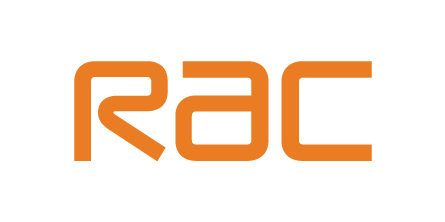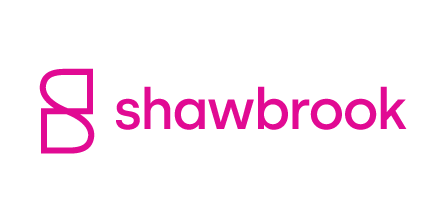What is PCP car finance and how does it work?
Personal Contract Purchase (PCP) car finance is a type of finance agreement that enables drivers to get behind the wheel of a new or used car, often with lower monthly payments. This makes it an attractive option for those looking to upgrade their car but are on a tighter budget.
At the end of a PCP contract, customers have three options; return the vehicle and walk away, part-exchange for another vehicle, or make another lump sum (balloon) payment to own the car outright.

How to secure PCP car finance
The first step to securing Personal Contract Purchase car finance is to start by checking your credit score to ensure you’re likely to be approved. Next, consider the total cost, including the deposit, monthly payments, and the optional final payment if you wish to own the car. Finally, gather necessary documents such as proof of income, identity, and address. Carefully reviewing the contract details before signing to ensure you understand the commitment and any fees or charges involved.
For those uncertain about PCP car finance, Car Finance Saver and Monevo are partnered to provide a wide array of lenders specialising in personal car loans.
Is PCP car finance the right option for me?
Whether or not a PCP car finance option is right for you really depends on your individual circumstances and needs. There are a few things to consider before making the decision, such as how long you need the car for, and what your financial situation is.
The great thing about PCP car finance is that it’s more flexible than other car financing options. It gives you the ability to hand back the car after the agreed period of time, so you don’t have to commit to anything further down the line. If you’re trying to save some money and like the sound of this, you’ll also be pleased to know they PCP offers lower monthly payments to better suit your budget.

Advantages & disadvantages of PCP car finance
PCP car finance offers benefits and drawbacks. It’s cost-effective, leading to lower monthly payments and interest rates due to not owning the vehicle at the agreement’s end, offering flexibility. However, the lack of ownership means facing a decision at the contract’s conclusion: return the car, buy it with a large payment, or start a new agreement. This can lead to a cycle of continuous payments without ever owning a car.
| ✅ Lower monthly payments | ❌ No ownership |
| ✅ Potentially lower interest rates | ❌ End-of-term decision pressure |
| ✅ Increased flexibility | ❌ Potential for continuous payments |
Frequently asked questions about PCP car finance
What does PCP stand for?
PCP stands for Personal Contract Purchase. It is one of the most popular ways of financing a car due to having lower monthly payments.
Who is eligible for personal contract purchase?
Most individuals over the age of 18 are eligible to purchase a car on a personal contract purchase (PCP) agreement. Applicants must have a good credit rating and must demonstrate that they can afford the monthly payments, however some lenders can offer deals for those in different situations.
It’s important to bear in mind that a PCP is only suitable for short-term use of the vehicle. At the end of the contract period, you will need to make an additional payment, called a balloon payment, or arrange an alternative finance package if you wish to keep the car. Those who cannot meet this obligation may instead opt to return their car to the dealer with no further cost or liability.
What will happen at the end of my PCP agreement?
At the end of the PCP term, you will have the option to either make a final balloon payment and take ownership of the car or return it to the lender.
What is a balloon payment?
A balloon payment is a lump sum paid at the end of a loan term in order to settle the remaining balance. This type of payment structure is often used when borrowers are unable to commit to a regular repayment schedule due to limited income or other financial constraints. It can also be an attractive option for borrowers who want to invest their money elsewhere, as it reduces their regular repayments and enables them to pay off a larger amount at once.
Is a PCP contract the same as a lease?
A PCP (Personal Contract Purchase) contract and a lease are two different types of financing arrangements. Although similar, there are some distinct differences between the two.
A PCP contract is an agreement between the customer and a finance company. An initial deposit is usually paid towards the purchase price of the item, followed by monthly payments over the term of the agreement. At the end of the term, customers have three options: return the car to the finance company; part exchange it for another vehicle; or pay off any remaining balance outstanding on their loan in order to own it outright.
With a lease agreement, however, customers can make monthly payments on their car but they do not own it at any point during or after their contract. Ownership remains with the finance company throughout this period. This means that customers are essentially renting the vehicle from them until they decide to return it at, at which point their contract will terminate.
Should I choose PCP or HP car finance?
When it comes to financing a new car, most people have to make the important decision of whether to opt for PCP (Personal Contract Purchase) or HP (Hire Purchase). Deciding between the two options can be a difficult task, as each provides different advantages and drawbacks.
PCP is often seen as the more flexible option, due to its lower upfront cost and lower monthly payments. Those who don’t drive often or don’t want to commit to something long-term often choose PCP. There is an end-of-term balloon payment which must be paid if you want to keep the car at the end of the contract period.
HP car finance is less flexible than PCP but offers more security. You will own your car outright once all of your payments have been made. Any future value gained by owning your car completely may outweigh any additional costs incurred from opting for this type of finance. At the end of the day, choosing between PCP or HP finance will be a personal decision, based on your requirements.













